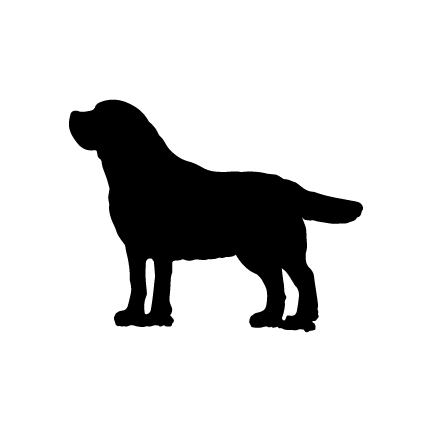What you need to know when raising English Labrador puppies…
What you need to know when raising English Labrador puppies
Adding an English Labrador puppy to your family is an exciting event! But it also takes some preparation to make this new addition to the family less stressful for you and your new puppy!
Puppy Proofing
Before your new puppy comes home, it is a great time to puppy-proof your house and yard. Your new little guy or gal is going to be curious about everything, including some things that could get them into trouble. Look around your house for any possible hazards like exposed electrical cords, toxic house plants, easily accessed trash cans, cleaning supplies, and small choking hazards like coins, and secure them where your puppy can’t reach them.
Puppy Prep
Before the puppy arrives is also a great time to make sure that you have all the supplies you need. Your English Labrador puppy is a large breed that will need basics like a food and water bowl, quality large breed puppy food, a large crate for crate training, and a dog bed. Our personal recommendation as experienced breeders for quality puppy food is either Royal Canin or Life’s Abundance Puppy food.
This is also a great time to set up a vet visit for two to three days after your puppy arrives. Your vet can give your puppy a check-up and help you set up a schedule for their puppy vaccinations.
Arriving Home from the Breeder (7-9 weeks old)
Your puppy is home! Over the next few days is when socialization starts for your puppy as you introduce them to immediate family members, including any other household pets. Remember to take things slowly since your puppy will have a short attention span and can get overwhelmed easily.
If you are introducing other pets to your new puppy, keep in mind that it may take a little time for them to get used to having a new fur brother or sister. Look for ways to include your older pets in this new transition and consider asking your vet or dog trainer for advice if your older pets are having trouble adjusting.
Another first for your new puppy will be starting the process of house training. Puppies have small bladders and will need frequent outdoor trips to help them understand that outside is the place to go. Consider limiting what areas of the house your puppy roams freely in with gates to keep them on surfaces that are easy to clean in case of an accident.
Your puppy will also need playtime and short walks to help them manage their energy levels. Keep in mind that your puppy is still growing, so they are going to need to have breaks and a quiet time to nap, too. Naps are a great way to help introduce your puppy to having quiet time in their crate!
Getting Bigger (3-6 months)
Once your puppy reaches this age, it is a super time to start looking into puppy obedience classes. These classes are a great way to socialize your puppy with new dogs and humans. Before registering, check with your vet that your puppy has all the necessary vaccinations to start being introduced to new dogs, and make sure that the obedience class requires that all the puppies who attend be vaccinated.
Around 4-5 months, your puppy will start to lose their baby teeth and grow in their adult teeth. Be prepared for all the chewing during this process with chew toys and treats to keep your puppy busy. This is also a good time to double-check your puppy proofing since the need to chew on things as those new teeth come in can encourage your puppy to be creative in finding new things to chew on.
Moving Toward Adulthood (7+ Months)
As your puppy is getting older and larger, this is a good time to talk with your vet about spaying and neutering. Your vet can help you decide when your puppy is mature enough to be spayed or neutered.
Your puppy’s energy levels and attention span are also growing, so adding longer walks, more training, and games like fetch to use those retriever skills can help them use that energy productively. Consider enrolling in additional training classes to help continue your puppy’s socialization with other people and dogs.
Finishing Growth (12 to 18 Months)
It’s time to celebrate your puppy’s first birthday! Your puppy should be almost at their full adult size by 12 months, but because English Labradors are a large breed of dog, they may continue to grow a little more up to around 18 months old when their growth plates close.
Now that your puppy has grown into an adult dog, introducing them to jogging or running with you or more intensive training programs are great ways to help keep them busy and stimulated!
English Labrador Puppies for Sale
If you are still looking for the perfect English Labrador puppy to add to your family, we hope that you will consider us! We have beautiful black, chocolate, and yellow English Labrador puppies bred from high-quality registered English Labrador boys and girls. Our goal as experienced breeders is to produce puppies who can be a loving and healthy part of your family for years to come. You can find out more about how to get one of our puppies here.




